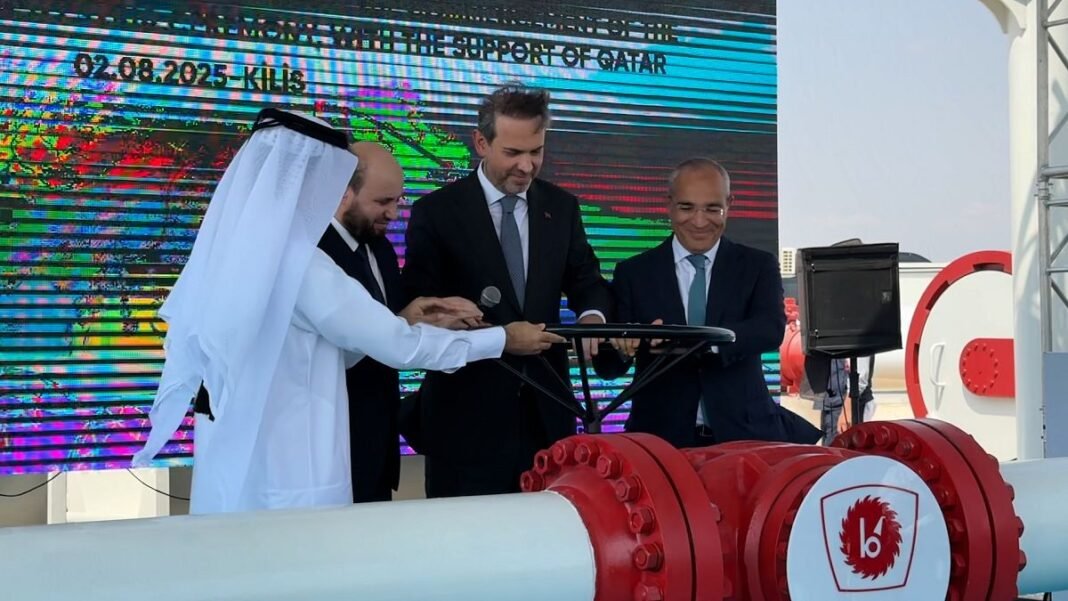Natural gas exports from Azerbaijan to Syria via Turkey began on Saturday with the opening of the Syrian natural gas pipeline for turkey.
The inauguration ceremony took place in the city of Kiris, the city of Kiris, just 7 km from the Syrian border. Turkish Minister of Energy and Natural Resources Alparslan Bakyraktar, Fahad Hamad Al Sarati of Qatar Development Fund, Syrian Minister of Energy Mohamed Al Basir and Azberbaijan’s Minister of Economy Mikhail Javalov were present.
In its opening speech, Bayraktar said the new pipeline means that Syria’s electricity supply will increase from three to four hours a day to a day.
According to Bayraktar, electricity will be exported from Türkiye to Syria from eight different points, and export capacity is expected to increase in the coming years.
“The new connection will bring the capacity to 860 megawatts,” he said.
Speaking to Euronows, Bayraktar said European countries that expect Syrians to return home “need to have concrete projects set up to turn expectations into reality.”
He said “Turkey is an important host” for Syrians who fled their country due to the war. Many of these people want to return to their home country, but he said they need to provide conditions for them to do so.
“As many countries, especially European countries, reject Syrian brothers and sisters, Turkey remains a very important host in this sense.”
“There are many needs in Syria, infrastructure needs, and other needs. Therefore, it is important for the European Union, European countries and Western countries to support, accept and contribute to these projects that are needed to normalize life there in this sense,” he said.
The minister previously announced that Turkey will cooperate with Azerbaijan and Qatar in exporting natural gas to Syria. He said a significant increase in energy production would help “accelerate the return” of Syrians in Turkish.
Bayraktar has also announced the signing of a contract with SOCAR, the state-owned oil and gas company for natural gas.
Energy cooperation
It was announced in May that a 7 billion (EUR 6.04 billion) strategic cooperation agreement had been signed between Kallion Holding and Kallion Holding, the UCC from Qatar, Power International from the US and Cengiz from Syria’s Ministry of Energy.
Within the scope of the contract, the group aimed to build natural gas cycle power plants throughout Syria within the next three years. The solar power plant is also expected to be built in about two years.
The consortium aims to ensure security, environmental sustainability and regional development of Syria’s energy supply.
Energy supply during civil war
Syrians have suffered a severe energy shortage since the start of the civil war.
The long-standing war has paralyzed more than 50% of the country’s electricity grid, reducing its generation capacity from 8,500 megawatts to 3,500 megawatts.
The main reason for this is said to be serious damage to local power plants in Mkharde, Aleppo and Zayzoun.
Before the civil war in 2011, Syria produced and exported 400,000 barrels of oil per day. However, it is currently only able to produce 20,000 barrels and is dependent on imports. The natural gas sector, which had developed in 2011, is barely present today.
